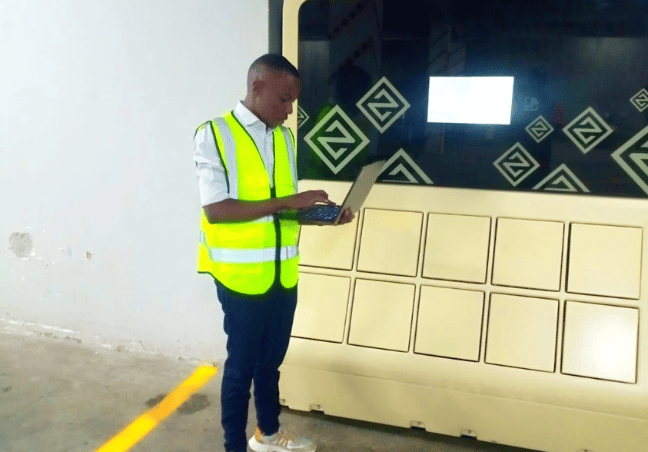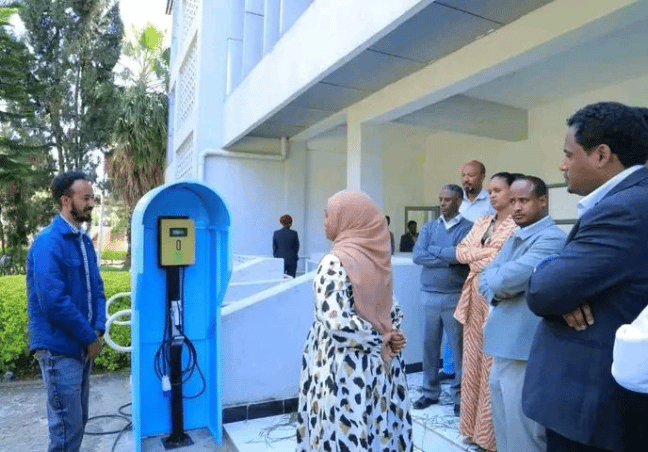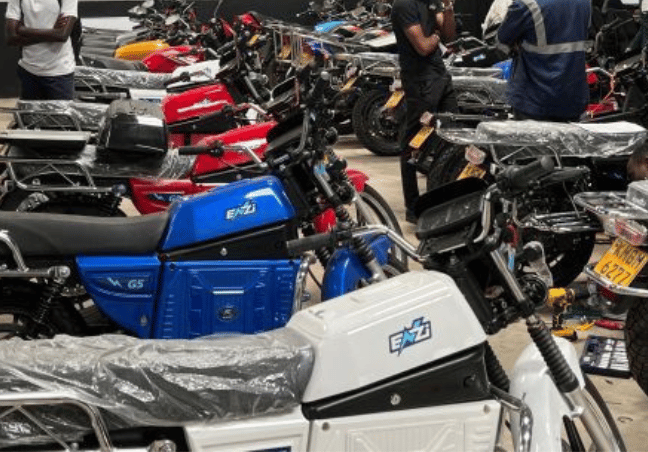- Mobility Rising
- Posts
- Ethiopia is now manufacturing EV chargers
Ethiopia is now manufacturing EV chargers
Dear subscriber,
Foreign investors have long regarded Africa as a risky market. For cash-trapped EV startups, this sometimes means having to accept capital with some tight strings attached. Good luck, Enzi Mobility!
Brian Ambani - Editor
Ethiopia has launched its first locally-made electric vehicle charger, joining the list of African countries that make their own charge equipment. The chargers come from the National Technical and Vocational Training Institute (NTVI), which has also produced EV body parts and industrial electric motors capable of powering utility vehicles and various equipment. |
Ethiopia’s recent ban on importing fuel passenger vehicles and trucks has created a lot of demand for EVs. Local manufacturing could reduce its reliance on imports as well as create jobs.
Firms in Algeria, South Africa and Kenya have also started producing EV chargers. Making them is much cheaper and less complex than full vehicle manufacture.
Our take: Africa can compete better in producing chargers than EVs… Read more (2 min)
Kenyan EV startup Enzi Mobility has signed a $3.5 million funding deal with investment firm Kula PCC comprising $2 million in equity and a $1.5 million blockchain technology stack. Kula’s investment will be tied to specific commercial and operational milestones. A real-time blockchain impact dashboard will track Enzi’s progress against key ESG indicators for transparency. |
Kula PCC’s structure and use of blockchain tools show that new forms of investment are entering Africa’s EV space.
While structured performance-based funding may help startups be more disciplined, over-emphasis on short-term performance metrics could discourage the necessary long-term innovation.
Our take: Foreign capital does not always fully understand or appropriately value Africa’s local market dynamics… Read more (2 min)
Clear policies and adequate funding are the key to realising the transition to electric buses in Africa, says Prian Reddy, senior manager for zero-emission buses in Africa at C40 Cities, a network of mayors, in an interview with Mobility Rising. He says. “We must not forget that this is as much an energy transition as it is a mobility transition.” |
Electric buses are gaining traction across Africa, especially in South Africa, Kenya, Nigeria, Egypt and Morocco. But high prices and the lack of enough chargers is holding back the transition.
Mr Reddy leads C40 Cities’ drive to electrify mass transport. He has worked for GoMetro and GreenCape and serves on the Smarter Mobility Africa advisory board.


Zeno Energy Infrastructure Manager Emmanuel Ndavi performs a diagnosis on the company’s charging structure (Source: Emmanuel Ndavi)
Jobs
🛵 Join MAX as a Fleet Officer (Nigeria)
🛠️ Become an Electrical Technician at Dodai (Ethiopia)
👨🏻💼 Apply for the Head of People’s role at Zeno (Kenya)
Events
📅 Attend the G20 Africa Energy Investment Forum in South Africa (Nov 21)
📅 Join industry think tanks at Kenya’s Public Transport Summit (Nov 26)
📅 Book a slot at the Africa EVs Expo in Kenya (Dec 4)
Various
🚘TAD Motors to unveil its locally assembled vehicles in Kenya this month
🏞 Third annual uYilo e-Mobility Summit clears the way for Africa’s electric future
✍️ Renault signs deal to produce EVs in Morocco
Seen on LinkedIn
Will vehicle electrification bring down the cost of goods in Africa? “Only if those who sell e-bikes allow people to charge from their homes. With the exorbitant prices for swapping batteries, there is no change coming unless otherwise,” says Ronald Mugaiga, an environmental systems engineer.


